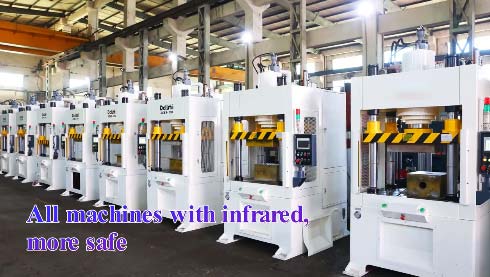Selecting Your Press Tonnage
One of the first things to consider when purchasing a hydraulic press is selecting the tonnage. Is the tonnage required to do a job the same for a hydraulic press as it is for a mechanical press? The answer is yes. There is no real difference. The same formulae are used to determine tonnage for both types of presses. The tooling is usually interchangeable. There may be certain applications such as deep drawing where the full power stroke characteristic of a hydraulic press reduces the tonnage, but there are no known instances where using a hydraulic press requires more tonnage.
Selecting press tonnage in the typical press room is often little more than guesswork. If, for example, a job is successful on a 100-ton mechanical press, it tends to stay there for the life of that job. The job may never have been tried at 75 tons or at 50 tons. With a hydraulic press, however, you can adjust tonnage quickly and easily, tuning the press to precisely the right tonnage for each specific job.
How The Press Affects the Job
Once the tonnage question is settled, it’s time to determine the effect of the stroke on the work. Is it the same as with a mechanical press? The answer, again, is yes in most cases. There are some specific limitations. Drop hammers and some mechanical presses seem to do a better job on soft jewelry pieces and impact jobs. The coining action seems sharper if the impact is there.

Shear in the dies will reduce blanking tonnage for hydraulic presses in the same way it does for mechanical presses.
And next time we will taking about what type of press is best for you.Stay tuned to Goodsjack!


 +86-769-8306-1993
+86-769-8306-1993
 E-mail
E-mail
